Diversity Programming At The Austin Film Festival
Coverage from the Austin Film Festival, highlighting some panels and films that emphasized the importance of diverse and inclusive storytelling.


For just over two decades, the Portokalos family has brought us zany antics and wholesome, relatable interpersonal dilemmas. Writer – and now director – Nia Vardalos is a walking advertisement for the power of inclusive storytelling, having taken it upon herself to tap an underserved market by crafting a self-reflective narrative, and effectively introducing audiences to Greek culture in a way no creative had done before.
She created a multimillion-dollar family-friendly franchise that revolves around themes of love, acceptance and finding balance between honoring tradition and embracing the new.
From the very first film, the core message has always been the same:
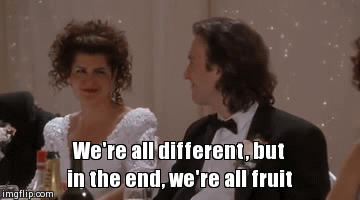
In doing my research for this piece, I noticed there hasn’t been much coverage on ‘My Big Fat Greek Wedding 3,’ and what is out there is largely negative – bent on highlighting the ways the film proved a disappointment, a fate that meets a lot of sequels.
While I don’t necessarily disagree with some of this commentary, I want to focus this review on an element the franchise continues to intentionally incorporate into its storytelling: queer representation.
This time, in the form of a new character – Victory, a non-binary Portokalos cousin, played by newcomer Melina Kotselou (she/they).
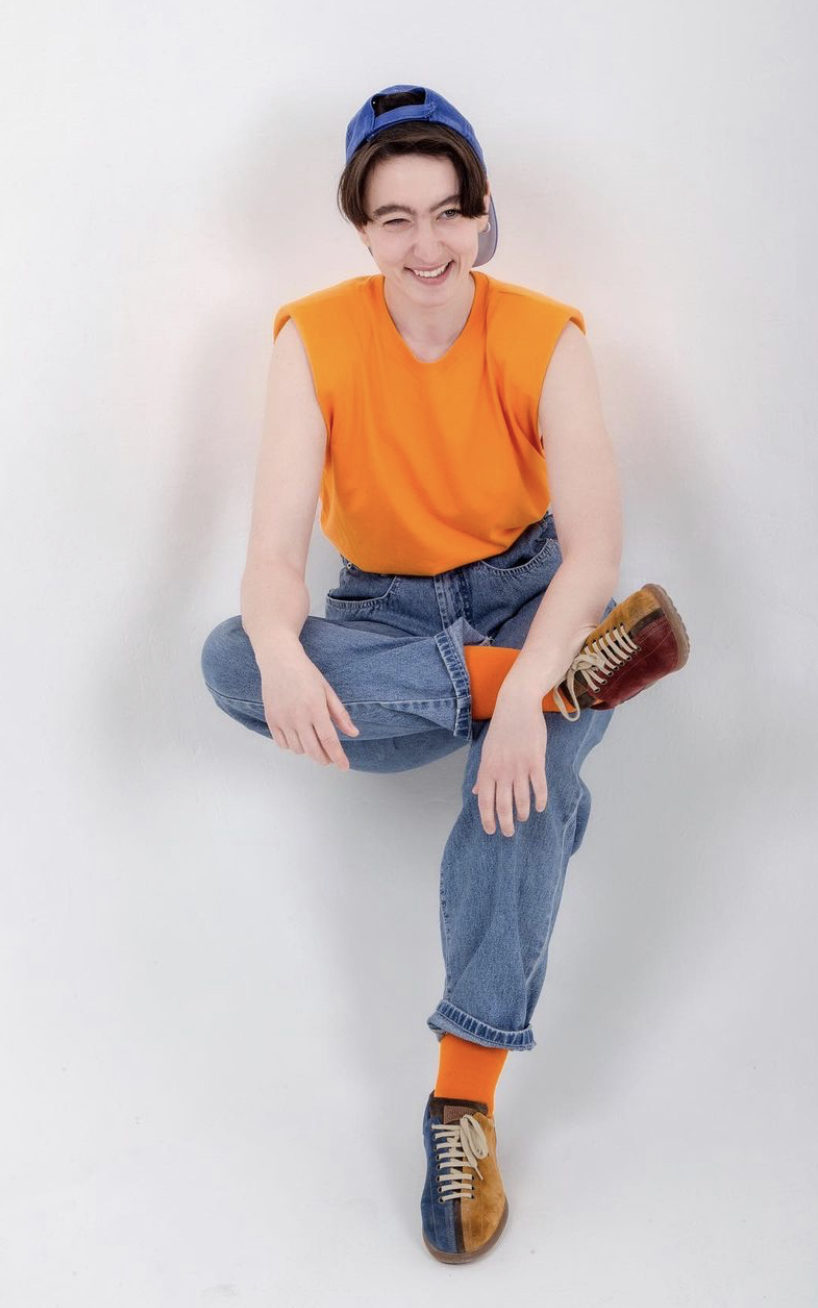
The spectrum of the reviews I read about the film range from not even mentioning Victory; to referring to the character as a “woman” and using she/her pronouns to talk about them; to this one “Collider” piece, which celebrates the non-binary representation the character provides.
I was both disheartened and a bit unsurprised by the lack of praise or recognition this character has received; and given the platform I have with Incluvie, I was even more emboldened to share my thoughts on why Victory is so important.
And why Voula remains one of my favorite characters in this charming film series.
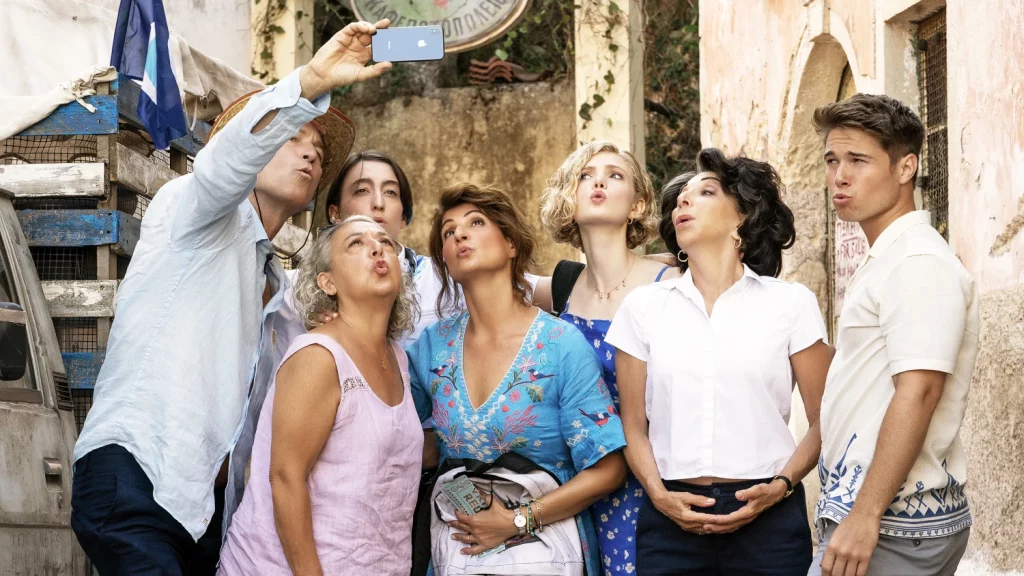
Before I get into all of my thoughts on Victory, I want to remind you that the Greek franchise has already dipped its toe into the waters of queer visibility.
Let’s take a walk down memory lane, shall we…?
According to a recent survey, 7% of Americans self-identify as a member of the LGBTQIA+ community. This means, statistically speaking, that in a family as big as the Portokalos bunch, a few of them are bound to be queer.
It therefore made sense that when the second film in the franchise was released in 2016, it featured a scene where we learned that Joey Fatone’s character, Angelo, is gay.
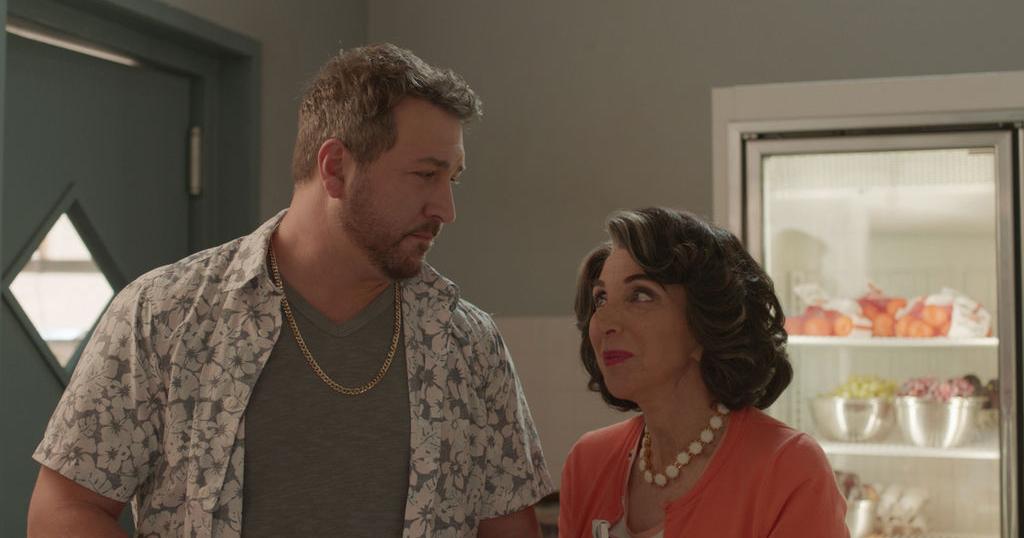
There was a sweet exchange between him and his mother, Voula (Andrea Martin), where she asked him: “He’s your partner or your partner?” And when her son responded: “He’s both,” she then nodded and said: “I know.”
Toward the end of the film, we get to see Angelo’s partner, Patrick (Jeff White), welcomed into the family’s celebration…
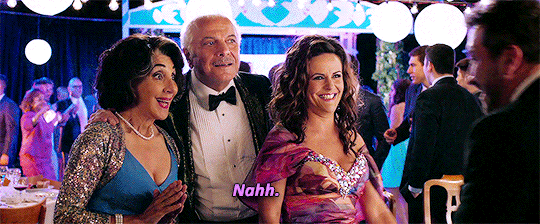
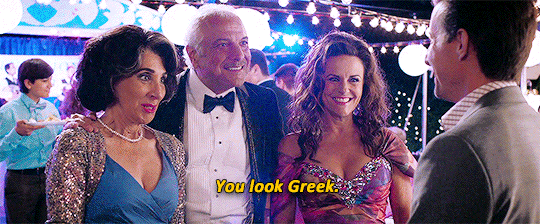
… complete with Voula’s typical overshare of personal info.
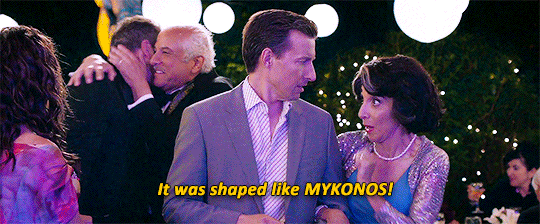
This was one of those situations where the film had just enough screen time for this side story to be inclusive of the LGBTQIA+ experience, without pulling focus from the main narrative. After all, this is Toula and Ian’s love story, right?
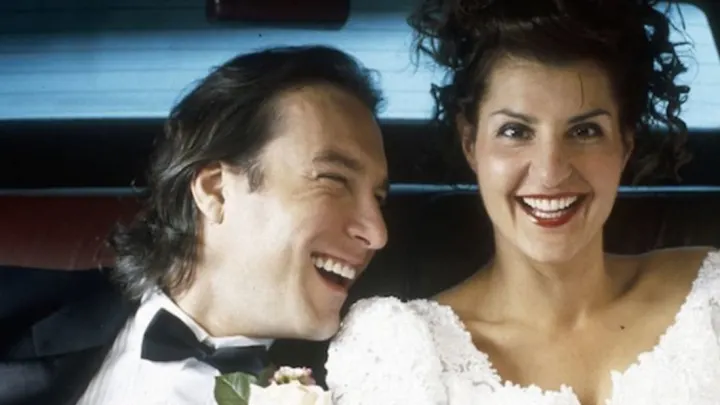
Overall, I walked away from the film content and a little impressed by the intentionality in this story decision.
Side note: I would like to have seen a follow-up where we address how the expectation for Greek men to marry and have kids is navigated. In a series that seems bent on subverting cultural traditions, it would’ve been nice to see this explored further. But, again, this isn’t Angelo’s story.
Now here we are in 2023, and we have Victory, who comes on the scene as a ball of energy and enthusiasm and is impossible not to like.
When I first saw this character in the trailer, I had a suspicion that they were queer, but wasn’t sure if my own queer lens had made me biased.
It should be noted that my queer lens also assumed that the secret Paris was harboring – and the reason she was hesitant to start a romance with Aristotle – was because she, too, was queer. I expected that to be the truth that was revealed, and was a little let down when that didn’t happen, not gonna lie.
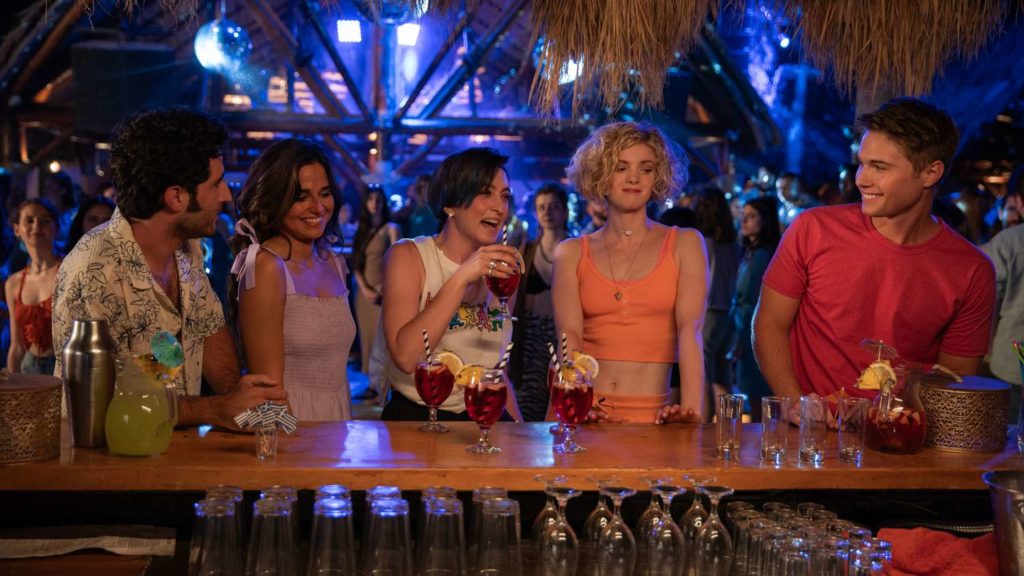
Within minutes of Victory’s introduction, my suspicions about them were confirmed, as Aunt Voula leant over to them, to reassure Victory that she sees them and approves of their “alternative lifestyle,” citing her gay son and divorced daughter as examples of her own growth and tolerance. As cringey as this line may be, it feels pretty authentic for someone from an older generation who is determined to be an ally – a bit clumsy but clearly well-intended.
Voula asks Victory: “Do you like to wear boy clothes or girl clothes?” and we can see on Victory’s face that they appreciate the question, that they feel accepted and safe.
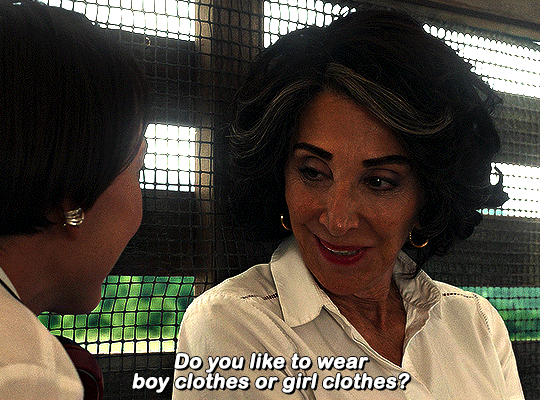
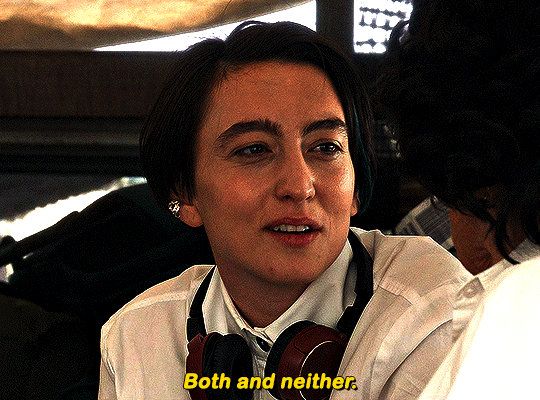
And I love that they turn the question right around and ask Voula what she prefers, offering her a chance to ponder her own answer to the question, and further normalizing the conversation being had.
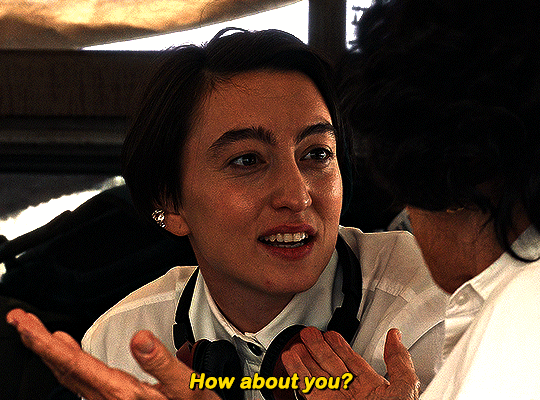
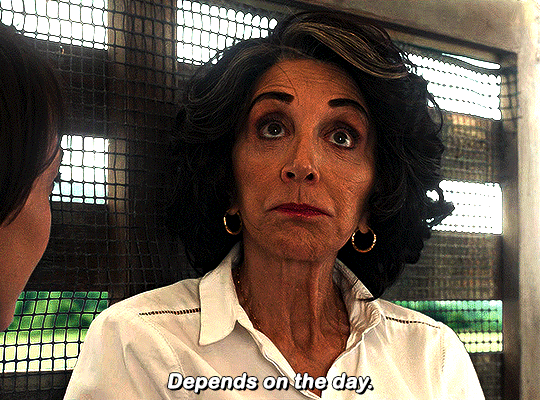
I just loved this whole exchange. So cute, so simple, so effortlessly affirming.
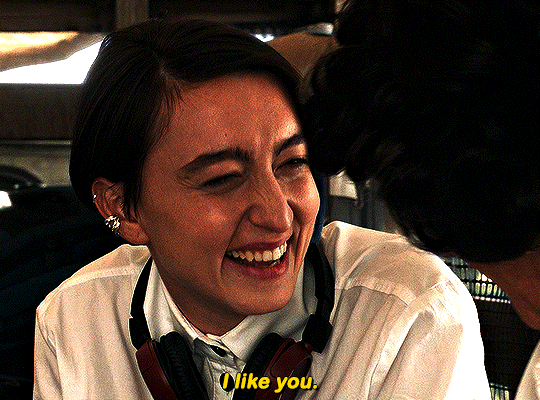
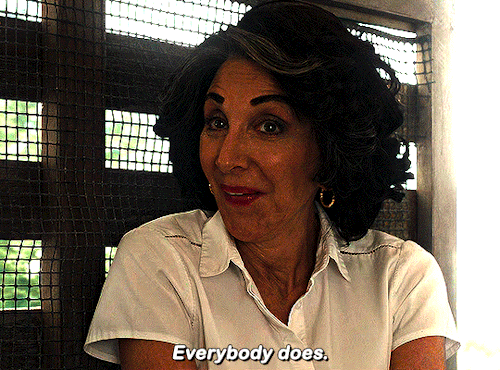
Interestingly, the words “queer” or “non-binary” are never used, similar to the way Angelo didn’t come out by saying the words “I’m gay.” I kind of like that there’s an absence of labels – both Angelo and Victory are allowed to just be and are embraced for who they are.
And I really love that Victory didn’t have a romantic storyline in this film, that their queerness was imbued into who they are and how they see the world. They were the voice of reason and encouragement, the self-confident sage helping everyone find their path.
In a lot of ways, their queerness was an asset to the story’s engine, as their unabashedly living in their truth acted as a beacon for the other characters to follow suit. How beautiful is that?
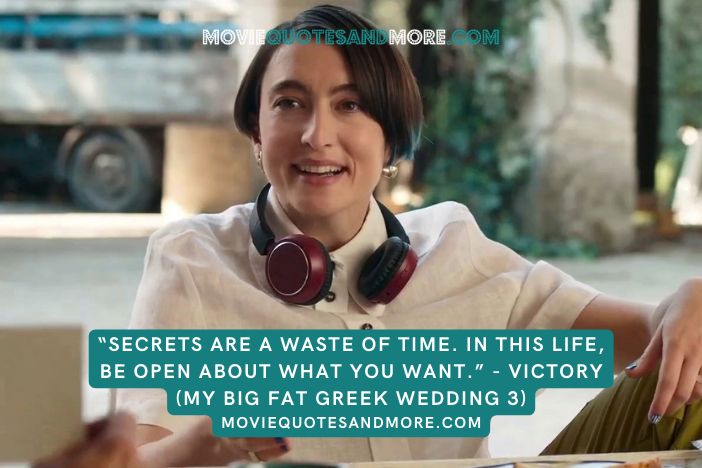
Aside from the gender expression/presentation being referenced in the dialogue and showcased in the costume choices – love the cape! – there were two other elements that proved the intentionality with which Vardalos approached Victory’s inclusion in this story.
The first is something only keen-eyed viewers will notice – no pronouns are ever used to refer to Victory. I used they/them in this piece, but Victory is only ever referred to as “Victory” in the film. Another example of how the lack of labels can offer its own visibility for fluid gender expression.
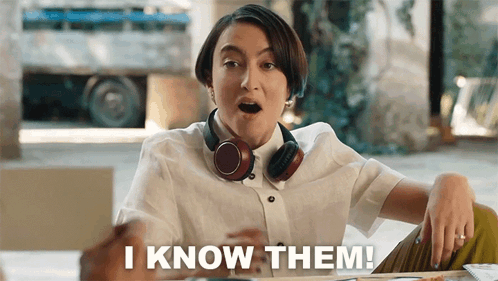
The second element occurs toward the very end of the story, during the wedding party, in a sequence where the men and women are separated for a dance.
I wondered how/if Victory would be included, and after realizing they weren’t in the group, I figured the film would just show them off to the side, watching the dance, effectively avoiding addressing the character beat altogether.
But then, they came into frame, joining in on the men’s side for a couple beats, before swapping to the women’s side for the next few beats. A beautiful acknowledgement of the fluidity of Victory’s identity without any dialogue needed.
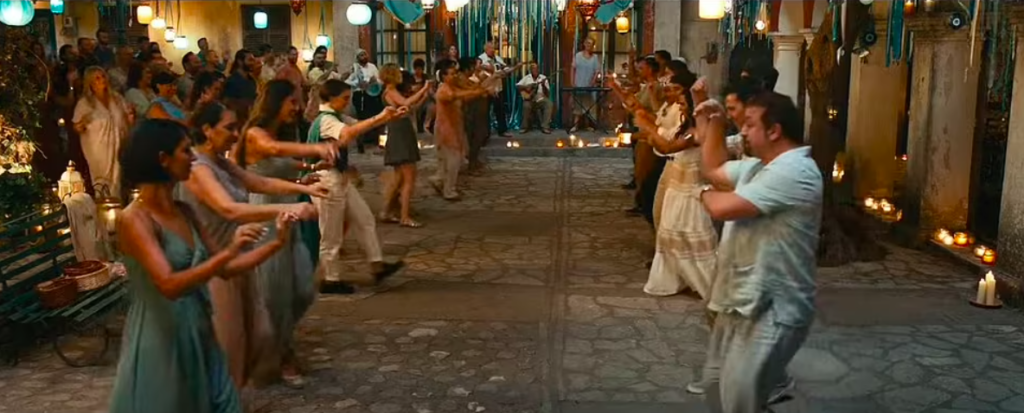
Ultimately, it was because of Victory that the family was brought together, so in the overall scheme of things, they are both the foil and the hero of the story.
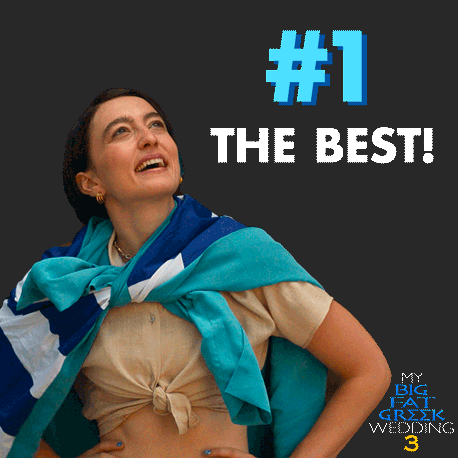
And how wonderful is it to see a gender-fluid, non-binary character get that spotlight as they are, to see them celebrated and basking in the joy of their triumph?
We need more Victorys in media.
‘My Big Fat Greek Wedding 3’ is still playing in select theaters, but also available to rent or buy on-demand.
For further reading, check out this article about Greece’s current strides in recognizing LGBTQIA+ rights.
Related lists created by the same author
Coverage from the Austin Film Festival, highlighting some panels and films that emphasized the importance of diverse and inclusive storytelling.
Related diversity category
The film's storylines read as allegories for the queer experience and that's a source of solace for LGBTQIA+ fans!
Related Movie / TV / List / Topic
Amberley Snyder, a young woman whose injury leaves her with a disability, shows viewers that her handicapped state won't stop her from competition.